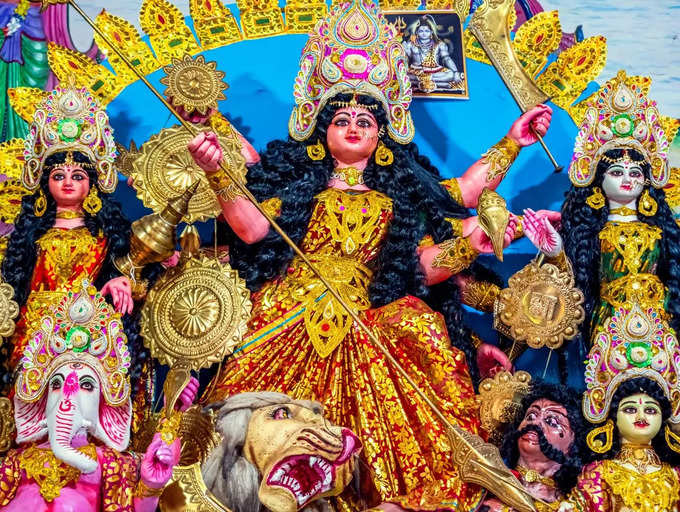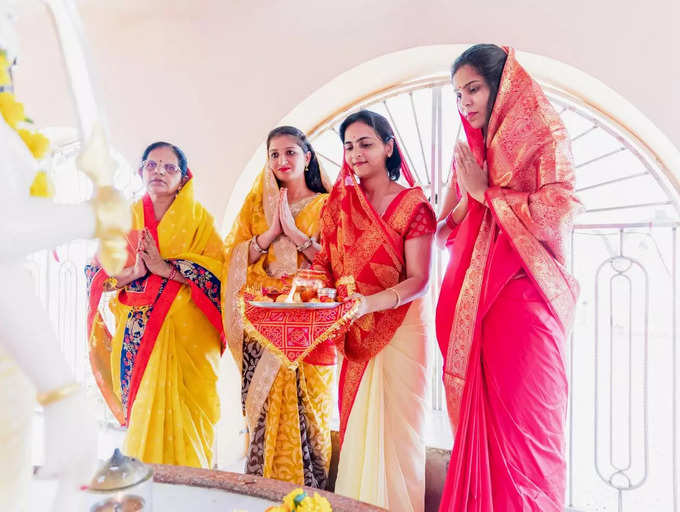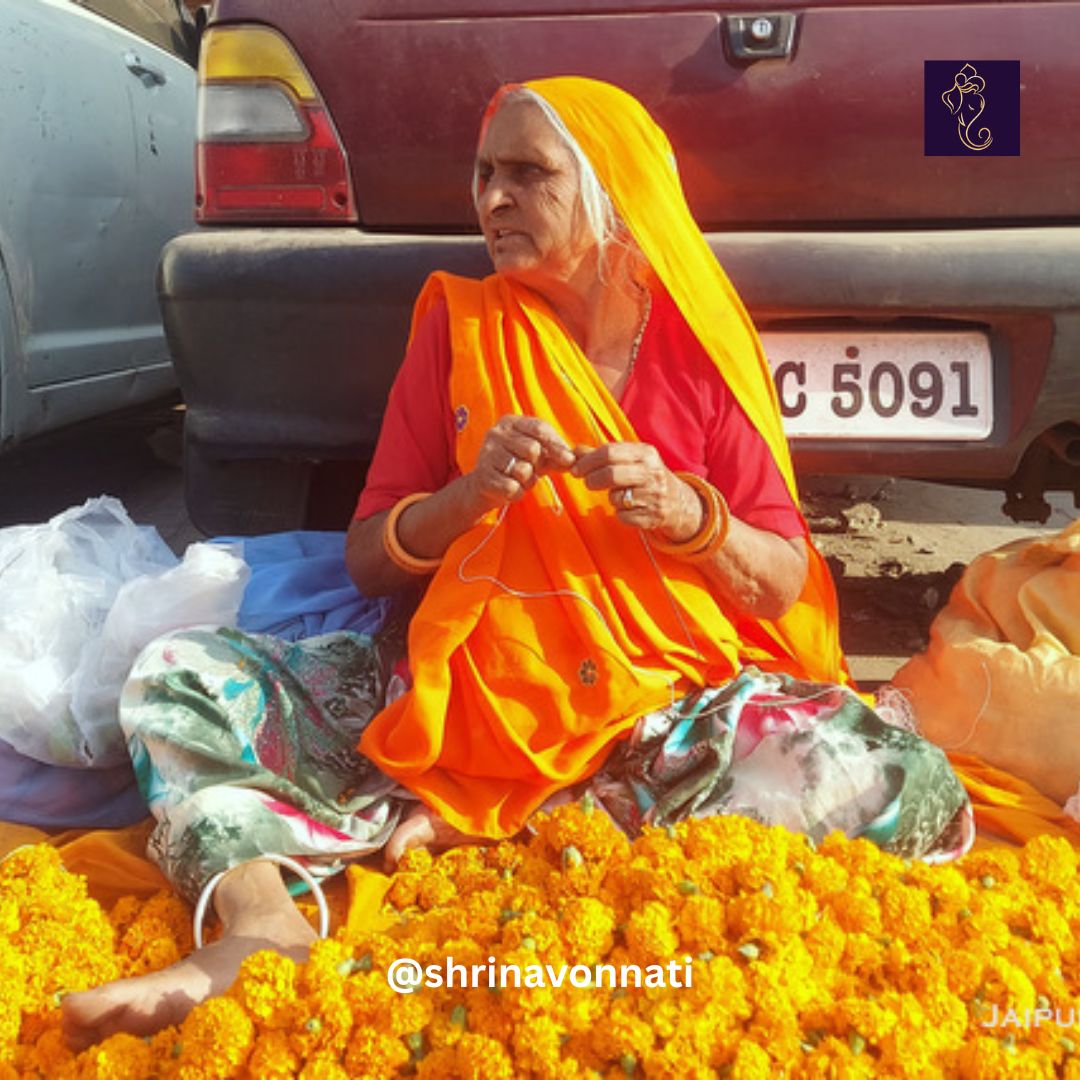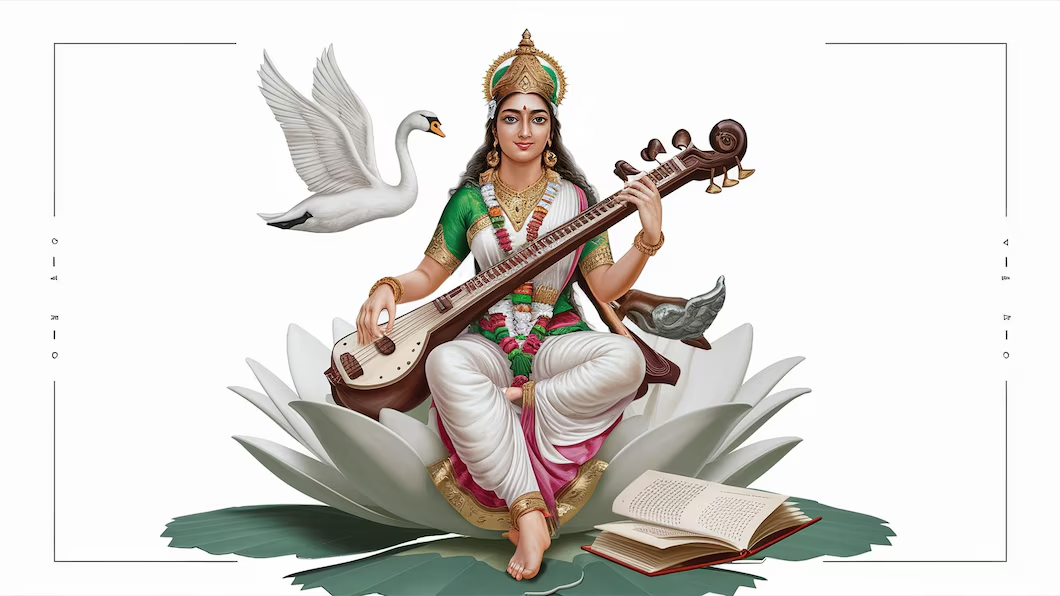
The auspicious Navaratri festival
Navaratri, a significant Hindu festival spanning nine nights and ten days, holds immense cultural, religious, and social significance within India and across Hindu communities globally. Navaratri is a joyous celebration of the diverse incarnations of the Goddess Durga, embodying divine feminine energy characterized by power, purity, and divinity. Devotees fervently seek her blessings for prosperity, happiness, and protection during this auspicious period. The festival symbolizes the victory of good over evil, recalling the triumphant battle of Goddess Durga over the demon Mahishasura.
This year, Navaratri starts on October 15, Sunday and will end with Vijaya Dasami celebration on October 24, Tuesday.
The 9 forms of Goddess Durga worshipped during Navaratri
The 9 days of the Navaratri festival are dedicated to the 9 forms of Goddess Durga, all embodying distinct attributes.
- Day 1 is for Devi Shailaputri who represents nature and mountains;
- Day 2 is for Devi Brahmacharini who symbolizes knowledge and penance;
- Day 3 is for Devi Chandraghanta embodies peace and prosperity;
- Day 4 is for Devi Kushmanda signifies creative energy and the cosmos;
- Day 5 is for Devi Skandamata is revered as the mother of Lord Skanda;
- Day 6 is for Devi Katyayani who embodies valor and power;
- Day 7 is for Devi Kaalratri who stands as a fierce protector;
- Day 8 is for Devi Mahagauri who symbolizes purity and serenity and at the end,
- Day 9 is for Devi Siddhidatri who grants wisdom and fulfills aspirations.
What not to do during Navaratri?
During Navaratri, certain things are forbidden as a part of the religious and cultural observances as per Hindu religion. The festival is a time of purification and spiritual reflection, where devotees aim to maintain purity in thoughts, actions, and diet. Certain restrictions promote a sense of self-discipline, austerity, and reverence towards the Goddess Durga, fostering a conducive environment for devotion, prayer and seeking divine blessings during this sacred period.
Consumption of non-vegetarian food
Navaratri, a period of spiritual cleansing and devotion, emphasizes the principles of purity and spirituality. Consuming non-vegetarian food during this time is seen as conflicting with these ideals. Devotees partake in fasting and strictly adhere to a vegetarian diet, believing it helps purify the mind and body, bringing them closer to the divine. Upholding these dietary restrictions is a sincere way for followers to show reverence to the Goddess and invite her blessings, fostering discipline and respect during this sacred period of worship and self-reflection.
Alcohol and intoxicants
During Navaratri, the consumption of alcohol or any form of intoxicants is fervently discouraged. It is believed that such substances act as barriers to spiritual progress, clouding the mind and obstructing the clarity needed for seeking blessings and maintaining sanctity during this auspicious time. The festival is a period of heightened spiritual awareness and purification, where devotees aim to cultivate a clear and focused mind to connect with the divine. Avoiding alcohol is a symbol of devotion and discipline, reinforcing the significance of mental and spiritual clarity in the worship of the Goddess Durga.
Eating onion and garlic
During Navaratri, onions and garlic are deliberately omitted from the diet due to their perceived tamasic properties. These ingredients, believed to stimulate negative energies and lethargy, can interfere with spiritual practices and meditation. The festival emphasizes a sattvic or pure diet to maintain clarity, balance and a state of heightened consciousness. By abstaining from tamasic elements like onions and garlic, devotees aspire to cultivate a higher level of spiritual awareness, aiding their ability to connect with the divine and achieve a more profound meditative experience.
Using foul speech
Navaratri is a sacred period of prayer and devotion, radiating with positive energy. It strongly discourages the use of foul language or negative speech, as such actions contradict the festival’s core principles of purity, respect and reverence. Devotees strive to maintain a harmonious atmosphere, cultivating a mindset of kindness and understanding. Words hold immense power to influence thoughts and energies; thus, using respectful and positive language aligns with the spiritual essence of Navaratri.
Engaging in unholy activities
Navaratri is a sacred time for spiritual growth and moral contemplation, urging avoidance of impure or unholy acts. Actions like lying, cheating, or engaging in malicious behavior is frowned upon. The festival embodies values of integrity, truthfulness, and righteousness and practicing honesty and virtuous conduct aligns with the essence of Navaratri, promoting inner purity and harmony. By consciously refraining from negative actions, individuals dedicate themselves to a path of righteousness, aspiring for spiritual elevation and a deeper connection with the divine during this auspicious time.
Indulging in material luxuries
Navaratri advocates detachment and spiritual growth. It urges restraint from overindulging in materialistic pursuits, excessive shopping or lavish spending. Instead, the emphasis is on prayer, meditation and self-reflection. Devotees are urged to recognize that true fulfillment arises from within and not external acquisitions. By avoiding excessive materialism and redirecting attention to spiritual practices, individuals cultivate a sense of inner peace and growth. Navaratri serves as a reminder to prioritize the spiritual journey over superficial desires, encouraging a deeper connection with the divine through contemplation and prayer.
Neglecting rituals and prayer
Navaratri holds a sacred space for nurturing spiritual connections through prayer, meditation and rituals. Disregarding these practices or remaining indifferent to their profound significance is viewed as disrespectful and counterproductive to the festival’s purpose. Devotees believe that active engagement in these spiritual activities is vital for personal growth and a deeper bond with the divine. Navaratri serves as a reminder to prioritize and actively participate in these rituals, honoring the Goddess and inviting her blessings. By dedicating time and energy to these practices, individuals foster a heightened spiritual consciousness, ultimately enhancing their spiritual journey and the essence of Navaratri.
Disrespecting elders
In all cultures, showing respect to elders and authority figures is fundamental and deeply ingrained. During Navaratri, this value is especially emphasized. Reverence and humility towards elders and those in positions of authority are considered essential virtues. Devotees are reminded to uphold this virtue during the festival, ensuring respectful conduct towards individuals with wisdom and experience. Disrespectful behavior is seen as contrary to the spirit of Navaratri, where harmony and mutual respect are vital for fostering a spiritually enriching environment.
Engaging in arguments
Navratri, a celebration of peace and unity, strongly discourages unnecessary conflicts. Engaging in arguments or disputes contradicts the festival’s essence of fostering a positive and tranquil environment. Devotees are encouraged to embrace harmony and understanding, nurturing a collective spirit of respect and amicability.
Ignoring charity
Navratri presents an ideal opportunity for acts of charity and generosity. Neglecting opportunities to extend kindness, help the needy, or give back to the community contradicts the festival’s spirit of compassion and selflessness. Embracing charitable actions aligns with the ethos of Navratri, spreading love and goodwill.
Skipping fasting
Fasting during Navratri is a means of purifying both body and mind. Skipping fasts without valid health or reasonable reasons undermines the devotion and commitment to the goddess. Adhering to the prescribed fasting guidelines demonstrates a devotee’s dedication to spiritual purification and reverence during Navratri.
Lack of self discipline
Navratri advocates self-discipline and self-control. Maintaining discipline in daily routines, particularly during fasting and following associated rituals, is a fundamental aspect of the festival. Devotees are urged to cultivate self-discipline, adhering to the guidelines and embody the principles of Navratri in their actions and behaviors.
Not taking care of Akhand jyoti
The flame symbolizes the presence of divine energy, often associated with the Goddess Durga or Devi, during the auspicious festival of Navaratri. When lighting an Akhand Jyoti for Navaratri, it’s crucial to keep it continuously lit. Regularly monitor and replenish it with ghee. Ensure there’s always someone present to maintain the lit diya and the flame remains uninterrupted. The Akhand jyoti symbolizes devotion and a constant connection with the divine throughout the festival.






















